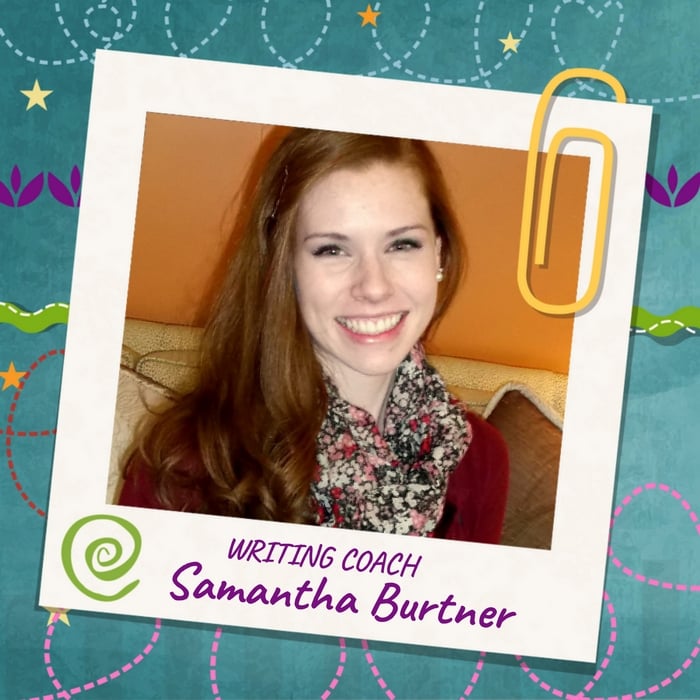Writing Coach Interview: Samantha Burtner

Continuing our series of interviews with our fabulous writing instructors, here’s the latest installment: an interview with the wonderful Samantha Burtner!
Samantha was homeschooled K-12 and even took several Brave Writer classes back in its early years! She holds a degree in Journalism from Patrick Henry College and has written for local newspapers, city magazines, online news sources, blogs, and even a communications shop at a think-tank in Washington, D.C. Now Samantha enjoys channeling her love of language and writing in the Brave Writer classroom teaching Expository Essay, Essay Prep, and The Scoop: The Art of Journalism. Last, but not least, she was recently sorted into Hufflepuff and isn’t sure how she feels about that.
What kind of a writer were you in high school?
A melodramatic one. My journals are brimming with outlandish tales, embarrassing moments, and comments or gestures blown completely out of proportion. I blush when I re-read them, but I can also see that the pages are filled with experimentation and risk-taking! I could try out new ideas or words or phrases and trust that my journal would be discrete and non-judgemental. As Virginia Woolf puts it: “The habit of writing thus for my own eye only is good practice. It loosens the ligaments. Never mind the misses and the stumbles.”
[This post contains Amazon affiliate links. When you click on those links to make purchases,
Brave Writer receives compensation at no extra cost to you. Thank you!]
If you could be any character in fiction, who would you be?
Tabitha-Ruth “Turtle” Wexler from The Westing Game. I live vicariously through her spunk and intelligence! Plus I love books that make me cry at the end.
Cake or pie?
Cake, but only if cheesecake counts. White chocolate raspberry cheesecake!
What book on your shelf is begging to be read?
I’ve recently started a journey through presidential biographies, and next up is a Thomas Jefferson!
Why is it important to study journalism and news writing?
Humans have a natural craving for news, to know about their community and world around them. Whether it’s a friend telling us about a new restaurant opening nearby, or a blaring front-page headline announcing the results of a presidential primary, news is information we use in our daily lives, and journalists are the storytellers who gather, select, order, and articulate the details of it. Beyond stories, journalism also ensures freedom by empowering people with knowledge. The press holds powerful people and the government accountable. It creates a means of public discourse. It can represent the voice of a people, expose corruption or oppression, and create community. The task of journalism is a serious and important one!
But even for young writers who are not interested in journalism as a future career, there are benefits to understanding and practicing the techniques of news writing. This type of writing requires organization, precision, economy, empathy, and rhythm to propel readers through the story. A good journalist is truthful, independent, and accurate, vigorously verifying information and rooting out facts, even ones that are inconvenient to their narrative. These are also the hallmarks of great fiction and academic writing! I think it’s telling that many celebrated authors were or are journalists as well: Charles Dickens, Mark Twain, Ida B. Wells, George Orwell, P. G. Wodehouse, E.B. White, Ernest Hemingway, John Steinbeck, Richard Wright, Joan Didion, Maxine Hong Kingston, and more!
Samantha Burtner’s Classes:
- Essay Prep: Dynamic Thinking
- Essay Prep: Research and Citation
- Expository Essay: Exploratory & Persuasive
- The Scoop: The Art of Journalism
Tags: writing coach


















